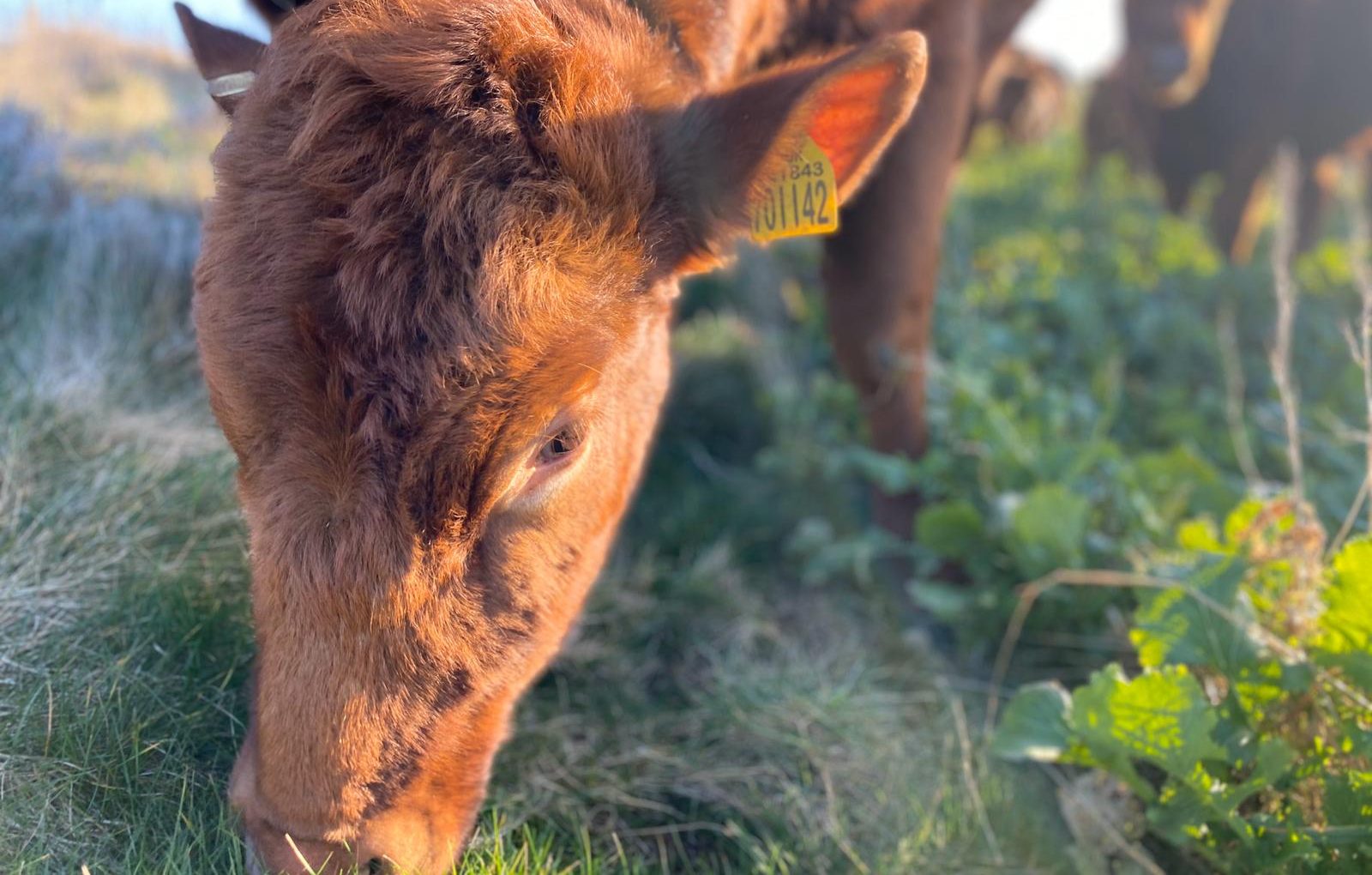
We’ve talked about this before, however with so many customers enquiring about our meat and the health and environmental benefits we thought we would put up another journal entry explaining why we converted to grass-fed and are Pasture for Life Assured.
It might surprise most people to know that most sheep and cattle in the UK are not raised exclusively on grass. Many are finished on grains such as barley, maize meal, soya cake, sugar beet, or the by-products of other industries such as brewer’s grains. Feeding livestock on soya contributes to deforestation in tropical regions such as the Amazon. Growing grains to feed grazing animals uses land that could be used for other purposes, and requires fossil fuels to power machinery, for production, transport, processing and also to produce the associated chemical fertilisers and pesticides.
By grazing animals entirely on British pasture, we are not contributing to further
deforestation, and responsibly managed grazing means grasslands and soil can store more
carbon, leading to a double benefit. Many of the typical environmental arguments against
grazing animals simply don’t apply to Pasture for Life farms because they are not a part of the
intensive system people are usually referring to and which most of the research and data is
based on.
It can take up to 100 years to grow 1 inch of soil – well managed pasture protects soil and
buffers it from erosion; a major problem for farmland across the UK. Good grazing practices
build healthy soil systems, making land more resilient to drought and floods, which is important, particularly as climate change means these weather events will become increasingly common.
Responsible grazing practices are vital for increasing wildlife and nature on our farms – many PfL farms host species of rare and endangered British grassland species, flowers, insects, and birds. Without farmers managing land in this way, these plants, and the species that rely on them to survive, will continue to decline. A recently published study has suggested that farming systems on PfL farms are improving the ecological condition of grasslands and wider ecosystems.(1)
Grazing animals return fertility to land through their manure, meaning we can reduce
their reliance on artificial fertilisers. Artificial fertilisers use fossil fuels in their production and
are in themselves polluting.
Soil isn’t just dirt, it’s alive: A teaspoon of healthy soil can contain 1 billion microbes, bacteria,
and fungi. Synthetic fertilisers and pesticides kill soil microbes, whereas organic manure allows
them to thrive. Thriving soil microbiomes make soils resilient, and help plants take nutrients
and minerals in the soil into their bodies, meaning the health benefits can pass onto the
animals, and ultimately, to us.
Everything comes back to soil: healthy soil > healthy pasture > health animals > healthy people
> healthy planet
“You are what you eat, eats” – Michael Pollan
You may have seen headlines about red meat causing high cholesterol, or cancer – but the reality is
more complicated than this. These studies are often studying meat from animals that are fed a high
proportion of grain in their diet, highly processed meat, or people who eat excessive amounts of meat as part of an unhealthy diet. Ruminants have not evolved to eat grain, and it leads to negative health outcomes for them, and us.
Meat from pasture- fed animals:
● Has a healthier fatty acid profile than meat from animals fed a diet including grain, in particular
overall omega 3 levels (good fats) are higher and the omega 6 : omega 3 ratio is healthier. (2)
● Has higher amounts of individual omega 3 fatty acids that have health benefits such as vaccenic
acid and conjugated linoleic acid (CLA), a potential cancer fighter. (2)
● Is higher in Vitamins such as B1, B2 (3), and E. (4)
● Is higher in beta carotene, a precursor for Vitamin A – which gives the fat that lovely golden colour
(and the colour to carrots) – this comes from eating pasture and won’t be found in grain fed animals.(4)
Animals raised on 100% natural forage have a diet that they’ve evolved to eat – one that is really
diverse, healthy, and nutritious.
● PfL Certification standards are updated every 2 years, to ensure they remain at the forefront of the
highest welfare standards in the UK.
● PfL animals have to be outside for most of the year, and many Certified farmers keep their animals
outdoors all year around, which reduces the negative health outcomes associated with indoor
housing.
● Letting animals graze freely lets them select their own diet, rather than being fed a set ration –
animals can pick out different plants according to what they want or need.
● Animals that are outdoors more, and have a diverse 100% pasture diet, have been found in numerous studies to have fewer health issues, and require less veterinary intervention.
● Diverse pastures are more likely to contain species of plant that act as natural wormers, reducing the need for veterinary wormers, which are also harmful to the environment (by killing insects/worms
when the manure goes on the land) and contributes to the development of resistant worms.
Thank you to Pasture for Life for providing us with such fantastic support and the information to write this farm journal entry.